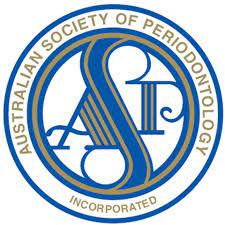Below are some frequently asked questions from our patients. If you have any queries that aren’t covered, please contact us.
- What is a periodontist?
- What are periodontal diseases?
- What causes periodontal diseases?
- What are the risk factors for periodontal diseases?
- How is periodontal disease treated?
- Can gum disease be treated with antibiotics?
- What are the side effects of periodontal disease treatment?
- How can I maintain the health of my gums?
- What are the survival rates of dental implants?
- What sort of dental implant complications can occur?
- What are the patient risk factors for peri-implantitis?
- How do I maintain the health of the tissues around an implant?
- Do I need a referral letter to see a Periodontist?
- What is your fee structure?
What is a periodontist?
A Periodontist is a registered dental specialist for treating gum problems. Periodontists undergo specialised training at University for additional three years after completing general Dentistry. Our expertise includes but is not limited to treating gum diseases, extraction of teeth including surgical extractions, surgical dental implant placement, bone augmentation and gum grafting. Please refer to our services for additional information.
What are periodontal diseases?
Periodontal diseases are diseases of the gum:
- Gingivitis which is defined as reversible inflammation of the gums.
- Periodontal disease, which is inflammation of the gums leading to loss of supporting structures of the teeth including bone, periodontal ligament and the gum itself.
The usual signs of gum diseases are redness of the gums, bleeding on brushing, recession, widening spaces between the teeth and bad breath. In severe cases of periodontal diseases you will also notice increased mobility of teeth.
What causes periodontal diseases?
Periodontal diseases are caused by bacterial accumulation of teeth at or below the margin of the gums. Scientific studies have found that there could be 500 different species of bacteria in the mouth. These bacteria form complex colonies called biofilm to establish themselves on to teeth and gums, leading to development of gum diseases.
What are the risk factors for periodontal diseases?
Apart from bacterial presence, there are several local, systemic and environmental risk factors that could contribute to progression or aggressiveness of the gum diseases. Risk factors include smoking, uncontrolled type 2 diabetes, rheumatoid arthritis and the presence of ridges and grooves on teeth which often contribute to development, progression and presentation of gum diseases. There is also increasing evidence that untreated severe gum disease could be a risk factor for preterm, low birth weight pregnancies, type-2 diabetes and some heart diseases.
How is periodontal disease treated?
Treatment of periodontal disease often depends on their nature and degree of severity. Like most chronic diseases, risk assessment and risk management are initial steps in treatment of gum diseases. Smoking cessation, the right brushing technique and interdental cleaning aids not only improve the health of gums but also prevent the reoccurrence of severe gum diseases. Nonsurgical debridement (cleaning) to remove bacterial deposits around and below the gum line will greatly improve the health of gum tissues. In some severe cases of gum disease, surgical periodontal treatment can be considered. In most cases, nonsurgical and surgical treatments can be carried under local anaesthetic in the dental chair.
Can gum disease be treated with antibiotics?
Antibiotics can be used to relieve the acute symptoms of gum diseases such as periodontal abscess. However, in chronic severe gum disease cases where the bacteria needs to be removed from the surface of the teeth, antibiotics with nonsurgical debridement have proven no beneficial effects, compared to nonsurgical debridement alone. Therefore, antibiotics are not often used to treat gum diseases.
What are the side effects of periodontal disease treatment?
Since debridement (cleaning) is done on the root surface of the teeth, some slightly increased but self-correcting sensitivity is to be expected. You may also see increased or widening spaces between the teeth as a result of reduced inflammation and swelling of the gums.
How can I maintain the health of my gums?
Regular tooth brushing with a soft bristle toothbrush, along with interdental cleaning aids such as flossing and interdental brushes helps reduce the bacterial loading in the mouth. Seeing a periodontist or dental hygienist for regular scaling helps maintain the stability of your gum condition.
What are the survival rates of dental implants?
In general, implants have been shown to have high survival rates. In excess of 95% of dental implants survive 5 years, decreasing marginally at 10 years.
What sort of dental implant complications can occur?
Dental Implant complications are generally divided into technical (mechanical), aesthetic and biological complications. Technical complications refer to mechanical damage of the implant and/or implant components or the implant prosthesis. These include fracture of the implant itself, screw loosening or fracture of screws. While fracture of the implant itself is uncommon, screw loosening or fracture of implant screws are more common.
Biological implant complications refer to disturbances affecting the supporting tissues of an implant and include implant loss, and soft tissue complications, including symptoms peri-implant mucositis and peri-implantitis.
Implant loss can occur in up to 3% of cases before and after an implant is loaded and restored. Peri-implant mucositis is the inflammation of the soft tissues surrounding an implant, with no signs of loss of the supporting bone following the initial phase of bone remodelling. Peri-implantitis is a destructive inflammatory process around osseointegrated implants in function leading to loss of supporting bone.
What are the patient risk factors for peri-implantitis?
The most common risk factors for peri-implantitis include smoking, poor oral hygiene, and a history of periodontal (gum) disease.
Smoking is associated with a significantly increased rate of early and late implant failures and increased occurrences of peri-implant mucositis and peri-implantitis. Smoking cessation has been shown to improve osseointegration success rates.
Poor oral hygiene has been shown to be a significant risk factor for the development of peri-implantitis and late implant failure. Patients with very poor oral hygiene have been shown to be more likely to develop peri-implantitis (up to 14 times).
A previous history of periodontitis has been shown to be associated with an increased risk of implant failure and peri-implantitis. Periodontitis patients have been shown to have an incidence of peri-implantitis approximately 5 times higher than non-periodontitis patients.
How do I maintain the health of the tissues around an implant?
The presence of proper implant reconstructions allowing access for cleaning around the implants and proper oral hygiene are essential for long-term implant success. Studies have shown that the maintenance of periodontal health significantly influences the development of peri-implantitis, possibly due to microbes within residual periodontal (gum) pockets that can infect adjacent implants.
Daily toothbrushing, daily flossing and/or the use of interdental brushes around an implant are essential for the health of the soft tissues around an implant.
Do I need a referral letter to see a Periodontist?
In most instances, your dentist will initiate a referral to a Periodontist based on severity of your gum disease, however if you have gum problems you can make an appointment with our Periodontists without a direct referral.
What is your fee structure?
The initial consultation fee is between $250 which includes a 30 minute consultation appointment with thorough examination and X-rays. Quotations for treatment are provided following this initial consultation and costs are based on an individual basis.
Have another question?
Please contact us now or fill in the form below and we will answer your enquiry.







